STANDARD ERRORS VS STANDARD DEVIATIONS
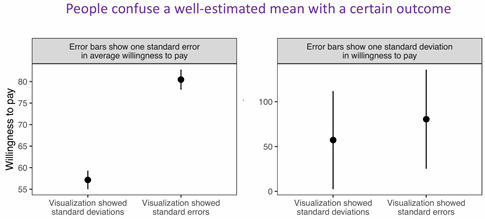
Click to enlarge
There’s an ancient haiku that goes:
People confuse a
well-estimated mean with
a certain outcome
Ok, that’s not true.
But Jake Hofman, Dan Goldstein, and Jessica Hullman have a new paper (recently accepted at CHI 2020) about this.
They bet you’ll think the results of their paper look are more impressive if you look at the plot on the left pane than if you look at the one on the right.
At least that what the results of their paper say.
Preprint here: http://bit.ly/353kBtj
There’s only a limited number of PDFs available, so grab one today.
Ok, that’s not true either.
Special thanks to @iamwillcai and @_JenAllen for their RAship on this!
Filed in
Conferences
 Subscribe
Subscribe to Decision Science News by Email (one email per week, easy unsubscribe)
ABSTRACT SUBMISSION DEADLINE JANUARY 15, 2020
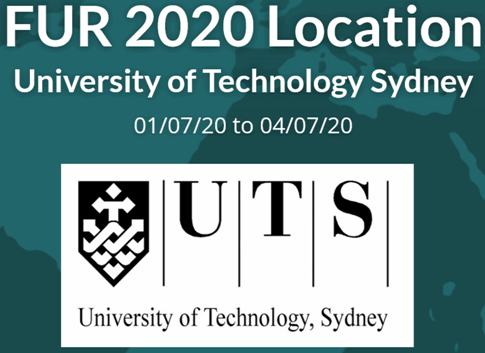
The Foundations of Utility and Risk (FUR) Conference will, for the first time, take place in the Asia Pacific area in 2020. We invite all Economists and other Social Scientists interested in the study of Decision-making to submit papers to the conference.
Since 1982, FUR gathers every two years researchers in Economics, Psychology and other Behavioural Sciences interested in the study of Decision-making. FUR 2020 will take place in Sydney, at the University of Technology Sydney from Wednesday, 1st July to the Saturday, 4th July. We have organised a great program for participants to make the best of a visit to Australia experience.
An impressive list of Keynote Speakers:
Paul Glimcher (NYU)
Muriel Niederle (Stanford University)
John Quah (National University of Singapore)
John Quiggin (University of Queensland)
Larry Samuelson (Yale University)
Leeat Yariv (Princeton University)
A pre-conference workshop (29th – 30th June) on the Gold Coast organised by Griffith University on the theme: “Decision process measures in Decision Theory and Game Theory”: https://www.furconference.org/workshop/
And a conference dinner at the Opera House!
The deadline to submit an abstract is the 15th January for a decision by the 15th February. If you need an earlier decision to organise your travel early, you are welcome to submit earlier and indicate your preference for an early decision.
You will find all the information about the conference as well as the submission page here: https://www.furconference.org/
The advertising of the conference can be found on Inomics, please feel free to forward this information to other researchers potentially interested: https://inomics.com/conference/fur-foundations-of-risk-and-utility-conference-2020-1410571
Registrations
Registration for the Conference will open on the 1st March 2020 and will be available via a link on the FUR Conference website. The registration deadline will be the 1st May 2020 (US$300 (full) & US$150 (student)) with the late registration deadline being the 1st June 2020 (US$400 (full) & US$200 (student).
Filed in
Conferences
 Subscribe
Subscribe to Decision Science News by Email (one email per week, easy unsubscribe)
SUBMISSION DEADLINE FEBRUARY 16, 2020
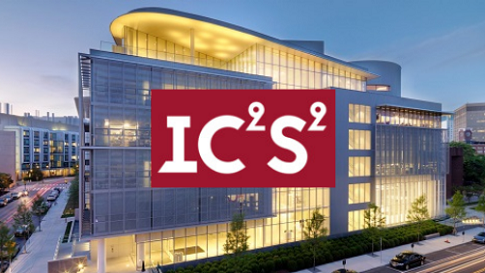
Call For Papers
IC2S2 brings together researchers in computational science, complexity, and social science, and provides a platform for new work in the field of computational social science.
Contributed abstracts are presented orally in parallel thematic sessions or as posters at the three day conference, which takes place at MIT in Cambridge, Massachusetts from July 17 to 20. For details, visit http://2020.ic2s2.org.
Regular abstract submission
IC2S2 solicits abstracts from researchers in the social sciences with a clear component of computation, simulation or data analysis or data science. This includes for example sociology, psychology, communication science, anthropology, media studies, political science, public health, and economics. In addition, contributions from computer science, data science, and computational science with real-world applications in the social sciences or related fields, are welcome. We emphatically welcome abstracts that try to integrate both components. This is not limited to empirical studies; more general theoretical contributions are also welcome.
Topics of interest include, but are not limited to, the following:
- Network analysis of social systems
- Large-scale social experiments
- Agent-based or other simulations of social phenomena
- Text analysis and natural language processing (NLP) of social phenomena
- Cultural patterns and dynamics
- Computational science studies (sociology of science)
- Social news curation and collaborative filtering
- Social media studies
- Theoretical discussions in computational social science
- Causal inference and computational methods for social science
- Ethics in computational social sciences
- Reproducibility in computational social science
- Large scale infrastructure in computational social science
- Novel digital data sources
- Computational analyses for addressing societal challenges
- Methods and analyses of observational social data
- Computational social science research in industry
Submission guidelines
Contributions to the conference should be submitted via EasyChair at:
https://easychair.org/conferences/?conf=ic2s2-2020
Please follow the extended abstract template guidelines for Word (ic2s2-word-template.docx) and LaTeX (ic2s2-latex-template.zip) for formatting instructions. Note that abstracts should be submitted as a PDF file no larger than 20MB. Submissions that exceed the 2-page limit (including figures and references) will be automatically rejected.
The extended abstract should include a title and a list of 5 keywords, but no authors’ names or affiliations. The abstract should outline the main contribution, data and methods used, results, and the impact of the work. Authors are encouraged to include one figure in their submission (the figure counts towards the page limit).
Please do not include authors’ names and affiliations in the submitted document, as peer review will be double blind. Each extended abstract will be reviewed by multiple members of the Program Committee, composed of experts in computational social science.
When submitting on EasyChair you will be asked to provide information about the authors and their affiliations and to include a one-sentence summary of the extended abstract (20-50 words). The summary will be used for assigning reviewers. You can indicate a preference for an oral presentation or a poster presentation, but your preference may not be honored in the final decision.
Submissions will be non-archival, and the presented work can be already published, in preparation for publication elsewhere, or ongoing research. Submission implies willingness to present a talk or poster at the conference.
Important Dates
Note: all deadlines are AoE.
- February 16, 2020 – Regular abstract submission deadline
- April 12, 2020 – Acceptance notification
- May 1, 2020: Early bird registration deadline
- June 8, 2020: Registration deadline
- July 17 — 20, 2020: Conference
Submit here: https://easychair.org/conferences/?conf=ic2s2-2020
Already uploaded submissions can be improved and updated as long as the deadline has not yet passed.
Questions or remarks regarding the CfP and submission process? Reach out to the program chairs at ic2s2-2020@easychair.org.
Filed in
Conferences
 Subscribe
Subscribe to Decision Science News by Email (one email per week, easy unsubscribe)
SUBMISSION DEADLINE DECEMBER 13, 2019

In this conference, investigators present original research on a variety of topics related to judgment and decision making, including but not limited to:
- Decision making under risk, uncertainty, and ambiguity
- Intertemporal choice
- Cognitive models of judgment and decision making
- Mathematical and statistical methodology for analyzing behavioral data
- Applications of JDM theory and models to health care and public policy
- Medical, legal, and business decision making
- Expert forecasting
- Wisdom of the crowds
Research may be empirical or theoretical, involving questions that may be basic or applied and theories that may be normative or descriptive, and does NOT need to involve to Bayes theorem or Bayesian statistics .
The conference will take place on the campus of California State University Fullerton.
We maintain certain traditions that have made these meetings so enjoyable. As Ward Edwards put it,
…the atmosphere is informal, the discussion can get intense, and many of the best debates take place during coffee breaks or in the hospitality suite at the end of the day. This Conference is a good place to try out your latest, wildest set of ideas on a kindly, knowledgeable, and critical audience.
If you would like to give a talk, please submit an abstract on the registration form at the link below. Submissions are due December 13, 2019.
Conference information
Online registration form
SOCIETY FOR JUDGMENT AND DECISION MAKING CONFERENCE PROGRAM: DOWNLOAD AWAY

The program for the 2019 SJDM conference (taking place this weekend (Nov 15-19, 2019) in Montreal, Canada) can be found in two places
Please get it while it is hot.
SOCIETY FOR JUDGMENT AND DECISION MAKING NEWSLETTER

The quarterly Society for Judgment and Decision Making newsletter is available for download from the SJDM site:
http://sjdm.org/newsletters/
It features announcements, conferences, jobs, and the 2019 Conference program.
See y’all in Montreal
(nobody ever says that but the 2019 SJDM meeting will take place in Montreal, November 15-18, 2019 and I will see you all there)
Filed in
Jobs
 Subscribe
Subscribe to Decision Science News by Email (one email per week, easy unsubscribe)
APPLICATION DEADLINE OCTOBER 15, 2019

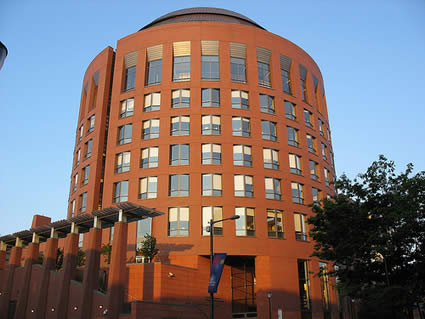
The Operations, Information and Decisions Department at the Wharton School is seeking applicants for a full-time, tenure track, Assistant Professor faculty position in the area of decision-making. Our decision-making faculty is comprised of scholars with a diverse set of backgrounds and interests, and we encourage applicants with degrees in economics, management, marketing, organizational behavior, psychology, computational social science, or any decision-making related field to apply. Applicants must have a Ph.D. (expected completion by June 2020 is preferred but by June 30, 2021 is acceptable) from an accredited institution and have an outstanding research record or potential in the field of decision-making. The appointment is expected to begin July 1, 2020.
More information about the Department is available at: https://oid.wharton.upenn.edu/
Interested individuals should complete and submit an online application via our secure website, and must include:
• A curriculum vitae
• A job market paper
• Three letters of recommendation submitted by references
To apply, please visit this web site: https://apply.interfolio.com/67351
Further materials, including (additional) papers and letters of recommendation, will be requested as needed.
To ensure full consideration, materials should be received by October 15th, 2019.
Contact:
OID Department
The Wharton School
University of Pennsylvania 3730 Walnut Street
500 Jon M. Huntsman Hall Philadelphia, PA 19104-6340
The University of Pennsylvania is an affirmative action/equal opportunity employer. All qualified applicants will receive consideration for employment and will not be discriminated against on the basis of race, color, religion, sex, national origin, disability status, protected veteran status, or any other characteristic protected by law.
Filed in
Conferences
 Subscribe
Subscribe to Decision Science News by Email (one email per week, easy unsubscribe)
SAVE THE DATE
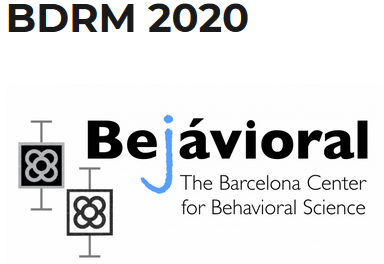
ESADE Business School will host the 2020 Behavioral Decision Research and Management (BDRM) conference, in Barcelona, Spain.
Dates: Tuesday June 16th – Thursday June 18th, 2020.
More information coming, September of 2019.
Faculty Organizers
Uri Simonsohn (ESADE)
Isabelle Engeler (IESE)
Jordi Quoidbach (ESADE)
Bart de Langhe (ESADE)
Johannes Müller-Trede (IESE)
Ioannis Evangelidis (ESADE)
Marco Bertini (ESADE)
Elena Reutskaja (IESE)
Gaël Le Mens (Pompeu Fabra)
María Galli (ESADE)
Dani Navarro-Martinez (Pompeu Fabra)
Sebastian Hafenbrädl (IESE)
Robin Hogarth (Pompeu Fabra)
Filed in
Conferences
 Subscribe
Subscribe to Decision Science News by Email (one email per week, easy unsubscribe)
SUBMISSION DEADLINE: SEPTEMBER 3, 2019
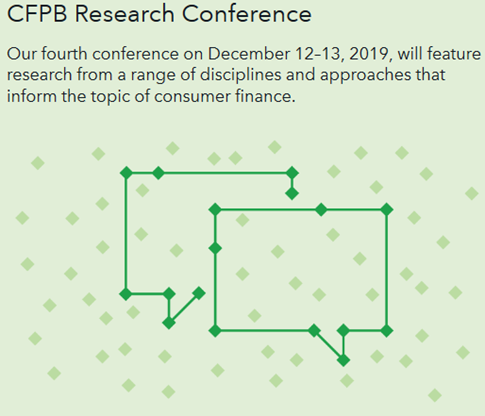
What: 4th CFPB Research Conference on Consumer Finance
When: December 12th-13th, 2019
Where: Catholic University in Washington, DC
In December 2019, the Consumer Financial Protection Bureau (CFPB) will host its fourth research conference on consumer finance at Catholic University in Washington, DC. Information on prior conferences can be found here: https://www.consumerfinance.gov/data-research/cfpb-research-conference/
We encourage the submission of a variety of research. This includes, but is not limited to, work on: the ways consumers and household make decisions about borrowing, saving, and financial risk-taking; how various forms of credit (mortgage, student loans, credit cards, installment loans, etc.) affect household well-being; how salience of product fees and terms affect saving and borrowing; the structure and functioning of consumer financial markets; distinct and underserved populations; and relevant innovations in modeling or data, including the use of alternative data.
A deliberate aim of the conference is to connect the core community of consumer finance researchers and policymakers with the best research being conducted across the wide range of disciplines and approaches that can inform the topic. Disciplines from which we hope to receive submissions include, but are not limited to, economics, law and economics, and cognitive sciences.
The conference’s scientific committee includes:
- Michael Baye (Indiana University)
- Ken Brevoort (Federal Reserve Board of Governors)
- Jeremy Bulow (Stanford University)
- Liran Einav (Stanford University)
- Gregory Elliehausen (Federal Reserve Board of Governors)
- Robert M. Hunt (Federal Reserve Bank of Philadelphia)
- Brian Melzer (Dartmouth College)
- Tom Miller (Mississippi State University)
- Janis K. Pappalardo (Federal Trade Commission)
- Wilbert van der Klaauw (Federal Reserve Bank of New York)
Authors may submit complete papers or detailed abstracts that include preliminary results.
All submissions should be made in electronic PDF format to CFPB_ResearchConference at cfpb.gov by Tuesday, September 3, 2019.
Please remember to include contact information on the cover page for the corresponding author.
Please submit questions or concerns to CFPB_ResearchConference at cfpb.gov.
Travel expenses will be provided for the presenting author of each accepted paper in the program.
Filed in
Jobs
 Subscribe
Subscribe to Decision Science News by Email (one email per week, easy unsubscribe)
JUDGMENT AND DECISION MAKING RESEARCHERS ENCOURAGED TO APPLY
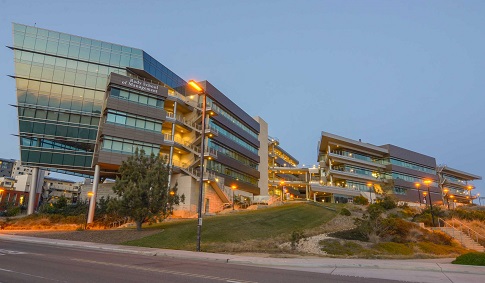
Decision Science News is a fan of the management group at UCSD and encourages readers to apply for this position.
Application Link
https://apol-recruit.ucsd.edu/JPF02178
Recruitment Period
Open date: August 1st, 2019
Next review date: Tuesday, Oct 1, 2019 at 11:59pm (Pacific Time)
Apply by this date to ensure full consideration by the committee.
Final date: Sunday, May 31, 2020 at 11:59pm (Pacific Time)
Applications will continue to be accepted until this date, but those received after the review date will only be considered if the position has not yet been filled.
Description
The Rady School of Management (http://rady.ucsd.edu) at UC San Diego is committed to academic excellence and diversity within the faculty, staff, and student body. The Rady School invites applications for one or more faculty positions at the Assistant Professor level (tenure-track) in the area of Management. Candidates must have a Ph.D. or be working toward completion of a Ph.D. by the start date of the new academic year (July 2020). Preference will be given to candidates whose research interests include judgment and decision-making, social psychology, organizational behavior, or people analytics. The School seeks candidates whose research, teaching, and/or service has prepared them to contribute to our commitment to diversity and inclusion in higher education.
Salary and appointment level are dependent on experience and based on University of California pay scales. The position is expected to have a start date of July 1, 2020.
Applicants are asked to submit a detailed vita, statement of research, statement on diversity, relevant research papers, and 3-5 reference letters via our on-line submission web site: https://apol-recruit.ucsd.edu/apply/JPF02178.
The application should include: a detailed curriculum vita, a statement of research with relevant publications, and a diversity statement summarizing their contribution, or potential for contribution, to diversity and leadership. The diversity statement should summarize past experience in activities that promote diversity and inclusion and/or plans to make future contributions. Further information about the required diversity statement can be found at http://facultyexcellence.ucsd.edu/c2d/index.html.
Review of applications begins October 1, 2019, and continues until position(s) are filled. For applicants interested in spousal/partner employment, please visit the UCSD Partner Opportunities Program web site: https://aps.ucsd.edu/services/pop/index.html. UCSD is an affirmative action/equal opportunity employer with a strong institutional commitment to excellence and diversity (http://diversity.ucsd.edu).
 Subscribe to Decision Science News by Email (one email per week, easy unsubscribe)
Subscribe to Decision Science News by Email (one email per week, easy unsubscribe)












